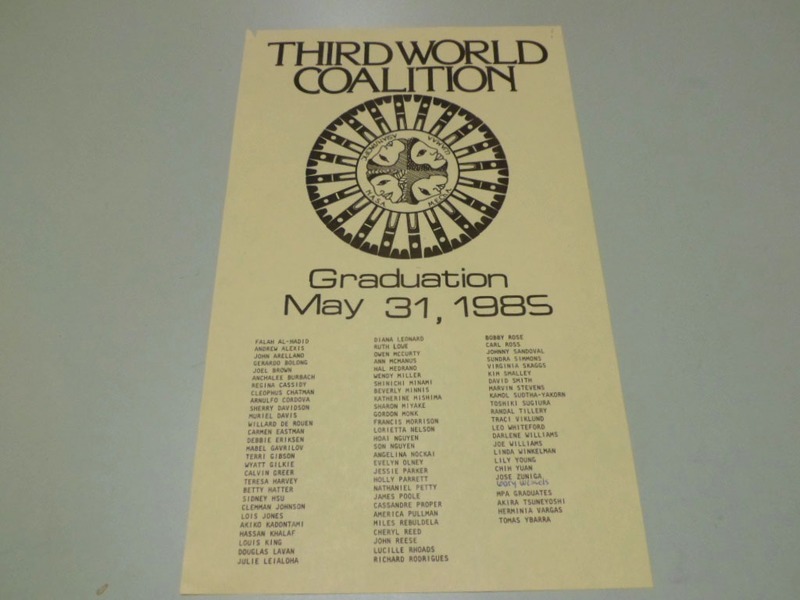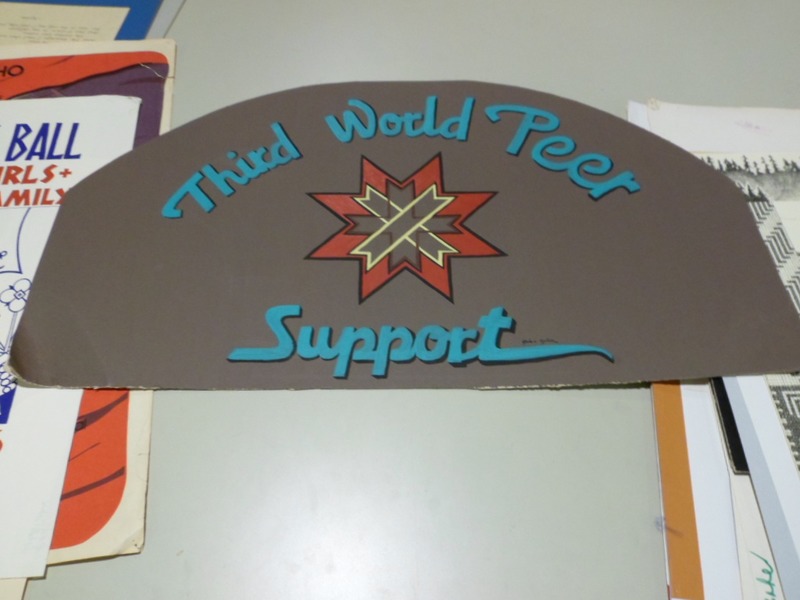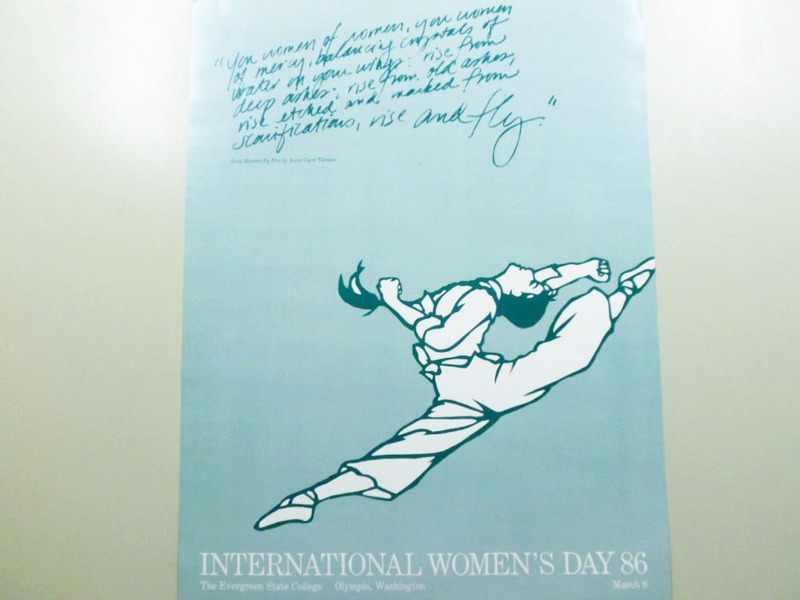History
The First Peoples Coalition began as a way to support students of color at The Evergreen State College, which was a predominantly white campus. Minority affairs offices were typical in colleges by the 1970s, but the early planners of Evergreen (being in the main, white men) had not seen the necessity for such an office. In 1972, when people of color (students, staff, and faculty) on campus realized that their concerns and interests had been overlooked and that they had not been invited to be part of the planning phase of the college, a group formed calling itself the Minority Coalition. It was due to the efforts of the people in this group that the Non-White Coalition Office was created. The Office examined how the campus could be more responsive to the needs of its First Peoples community. The Non-White Coalition Office ran the Third World Bicentennial Forum in 1975. The Bicentennial Forum boasted a national exhibition of art by people of color, workshops, seminars, panels, demonstrations, a panel painting, films, food, theater, and dancing. Topics included nutrition, law and justice, labor movements, culture, healthcare, sexism, racism, and philosophy. The three-day long festival hosted between 1,500 and 2,000 people.
After three years, the name was changed from Non-White Coalition to Third World Coalition as the participants felt the terms “non-white” and “minority” carried negative connotations for people of color and that “Third World” was more accurate in representing their historical, political, and cultural reality. In 1986, the name changed again to the First Peoples Coalition in recognition of their unique indigenous heritages. Members ranged from African American, to Native American and Alaskan Natives to Asian Americans, Pacific Islanders, and Latinx people.
The goal of the First Peoples Coalition was to be involved in all the different areas of campus in order to offer the best support to Evergreen’s students of color and it sought to provide a nucleus of social support for those students who were used to the greater cultural and ethnic diversity in their communities. The Coalition provided support, advocacy, referral, academic, and personal support for students and members of the Coalition worked hard on the recruitment and retention of students of color. Guidance and support often took the form of providing support for students who were falling behind in their classes or guidance on who to choose a faculty member, or guidance on how to write a contract. This support has, also, included a mentoring program where a student could request to match up with a staff or faculty member or alumni who would provide mentorship throughout the academic year. There was also a First Peoples library with periodicals and books that could be checked out by students.
The First Peoples Coalition also sponsored various kinds of workshops and talks with poets, activists, professors, and artists. They screened films, anything from the Tuskegee Experience to a film about the early Jewish immigrant experience in the US. Some of these were run by the First Peoples Peer Support and included topics on Financial Aid, Writing Self Evaluations, as well as Cultural Pursuit. Events celebrated by the First Peoples Coalition included Heritage Week (which included all cultures), Black History Month, Chinese New Year, Malcolm X Day, International Women’s Day, Asian Pacific Heritage Week, Indigenous Peoples Day, Kwanza, and many others depending on the year.
The First Peoples Coalition also evolved Evergreen’s Multicultural Scholars program, a program on campus for people of color and LGBTQ people. It was first offered in 1997 and introduced incoming students to Evergreen. The Coalition evolved into its current form, that of the First Peoples Multicultural, Trans and Queer Support Services. The support services currently offered include sponsored events and activities, including workshops, community forums, potlucks, and political discussions as well as peer and professional support, advising on academic, social, and personal avenues.



